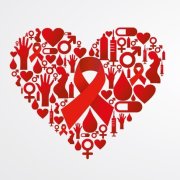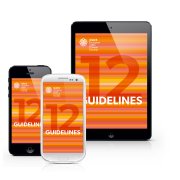EACS Partnerships
Coordinator: Annemarie Wensing, Netherlands
EACS engages and collaborates with other organisations in order to embrace a comprehensive and integrated view of research, training and education, and with the ultimate goal of promoting high standards of care for all people living with HIV
The EACS collaborates with different conferences and organisations, such as:
- ANRS
- BHIVA
- EATG
- ECDC
- EuroSIDA
- EuroTEST
- ESCMID / ECCMID
- HIV Glasgow
- IAS
- JSAR
- WHO
Click here to see the full list of EACS collaborations, partnerships and endorsements.
EACS endorses the EATG Belong project, focusing on the inclusion of people living with HIV in non-HIV clinical trials. Click here to see the full statement.
Projects with ECDC
- ECDC European standards of HIV prevention and care
-

The ECDC European standards of HIV prevention and care project is a four-year project launched in beginning of 2023. The project will be implemented by the European AIDS Clinical Society (EACS) and the Centre of Excellence for Health, Immunity and Infection (CHIP) and will reinforce the strategic objective of ECDC to support the development of European standards of HIV prevention and care, considering public health, clinical and community perspectives. The overall objectives for the project are:
- To define standards of HIV prevention and care along the care continuum pathway with related quality statements and measurable and auditable outcomes in Europe
- To develop a tool which can be used to audit the implementation of defined standards at national, clinical and community level.
Throughout the project ECDC aims to develop 8-10 standards along the HIV prevention and care continuum pathway under the guidance of an advisory group consisting of clinical, public health and community experts.
- ECDC Country support for the prevention and control of HIV/AIDS, STIs, and viral hepatitis
-
ECDC Country support for the prevention and control of HIV/AIDS, STIs, and viral hepatitis in EU/EEA countries," aims to bolster efforts within EU/EEA nations to prevent and control these infectious diseases. With a focus on strengthening public health policies and practices in alignment with the Sustainable Development Goals (SDGs) and fostering technical and scientific exchange among professionals in these fields across the region, the project endeavors to enhance collaboration and effectiveness in addressing the challenges posed by HIV/AIDS, STIs, and viral hepatitis.
- Survey: Measuring HIV knowledge and attitudes in the healthcare setting
-

The European Centre for Disease Prevention and Control (ECDC) and the European AIDS Clinical Society (EACS) are working to better understand HIV knowledge and attitudes in healthcare settings. The survey conducted between September and November 2023, measures knowledge and attitudes towards HIV in the healthcare setting across the European Region.
The responses will help identify the needs and priorities of both healthcare workers and people living with HIV so that we can reduce HIV-related negative attitudes and behaviour in healthcare settings in Europe and Central Asia.
EACS Partnerships and Joint Sessions
EACS Live! Interactive case-based discussion in Japan, virtual
SFLS Conference 2022, Paris, France
HIV Glasgow 2022, Glasgow, United Kingdom
ECCMID 2022, Lisbon, Portugal
MonkeyPox & HIV Co-infection Data Dashboard
ECCMID 2021, virtual
ISHEID 2021, virtual
IAS Educational Fund meeting in Russian, virtual
Update on HIV and SARS-CoV-2 - Online Symposium
HIV Glasgow 2020, virtual
ECCVID 2020, virtual
For more information, contact info_at_eacsociety.org.

20th European AIDS Conference
15-18 October 2025 Paris, France

EACS Guidelines updated
The EACS 12.1 and the app are available for free on


Educational Programme
Training and educating the next generation of clinicians and researchers is an EACS core activity.

EACS Resource Library
Access all scientific content of EACS core activities! (members only)

Interim Guidance
Interim Guidance on the Use of Statin Therapy for the Primary Prevention of Cardiovascular Disease in People with HIV